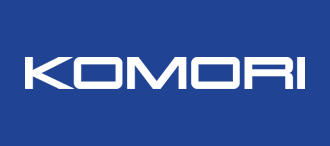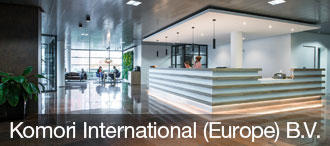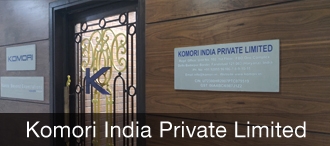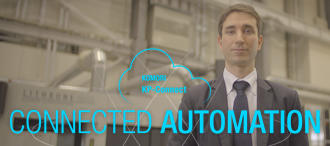Contributing to protecting the identities of individuals, companies and nations worldwide with "security printing technology"
26 June 2025

Group General Manager of Security Press Business Group Steve Craig
Security Press Business is one of Komori's core businesses, which delivers safety, security, and trust to people all over the world through security-printing technologies. It has been dedicated to the development and production of machines that embody the pinnacle of advanced technologies, earning strong trust both in Japan and internationally, as one of manufacturers of banknote printing presses in the world.
We spoke with Steve Craig, Group General Manager of Security Press Business Group, about his professional background, the role of leadership in navigating cultural differences, the strengths of the business, and its future direction -- all within the context of Komori's long-term vision.
Please tell us about your career, Craig.
I was born in Belfast in the U.K. and joined the Bank of England (BOE) in 1998. The printing division was later privatized and sold to De la Rue (DLR). I worked for DLR in countries such as Malta, the U.K. and Kenya. In 2012, I became General Manager of the Debden facility, where all BOE banknotes were printed. The BOE wished to turn Debden into a state of the art facility that could print its new polymer banknotes. We therefore had to invest in two brand new banknote printing lines. As part of this tender, I was in the position to evaluate Komori and its competitors. I remember that we ultimately chose Komori not only because of its excellent equipment performance and reliability, but because of its positive attitude in listening to customers' opinions and working collaboratively to solve problems. This relationship with Komori ultimately led me to join the Komori Group's security press business in 2019.
What are the advantages of Komori's security press business? What challenges do you think it faces?
As I mentioned earlier, I think that our culture of working collaboratively with customers and our unique philosophy of "Kando" is what has made us so successful with government agencies around the world. Although the Komori Group only entered the security printing press market in the 1980s, a market where a single organization had a complete monopoly, our market share continued to grow and we now supply to 38 countries.
The precision of our machines and the quality of our manufacturing are well trusted. Whilst we grow our customer base, we must in parallel grow our after-sale service that covers replacement parts. For example, AI based tools to deliver remote support to our customers. Komori is a global business with customers in many different time zones. Establishing our timely support for government agencies is a key focus for my team in the coming year. In order to pursue innovation, we must benchmark with external industries as well as our own business, and investment is also necessary. In that regard, our company has set a strategic investment of ¥20.0 billion in the 7th Medium-Term Management Plan, which will allow us to use resources effectively.
I understand that this is the first time that you have become the leader of a department that is mainly made up of Japanese people. How do you view the cultural differences between Japan and Europe?
To improve presentation skills, I have each person in the department give a presentation on Monday morning. It can be about work, hobbies, or anything. During the presentation, the topic of cultural differences came up, and I felt that Japanese people are very polite. The Japanese understand the customer well and try to solve problems together. I would like to reiterate that I think this is a major reason why Japanese products are accepted by government agencies around the world. However, there are some clear differences between Japanese and Western working cultures. My challenge is to leverage the strengths in both cultures to create a high performing, well motivated team.
For example, Japanese culture is very diligent, but this can lead to lack of speed in decision-making. Westerners can be more "We will figure it out," or "Just do it," to keep moving forward. We need to combine and balance the thoroughness of the East with the speed of the West! I think Ringi is an example where we need to change. Why have six people approve one item? From a Western perspective, I believe this leads to a lack of accountability and nebulous decision-making practices.
However, I do not think it is a question of which is better or worse. We just need to understand the differences and bring out the best in each other. I tell my team, "It is okay to fail, so long as we learn." I also ask my subordinates to feel free to give me their honest opinions - always question your leaders! It is important to have a balance between respecting each other's positions and cultures and improving our weaknesses.
Please tell us where you plan to take the security press business in the coming years.
As mentioned earlier, the banknote press business has been a global monopoly, but Komori has now significant success here and we will continue to grow our market share. Our worldwide network of Komori subsidiaries will enable us to achieve this global reach. Concurrent with our press sales, we must also grow our after-sale service business.
I think that Komori's customer-oriented attitude and innovativeness such as remote support will provide areas of growth as we continue to penetrate new markets. Since the market is a duopoly, I cannot give specific figures, but our specific goal is to increase the adoption rate of our printing machines and also to strengthen our services. To achieve this, we would like to strengthen our collaboration with the Tsukuba Plant and always move forward quickly in identifying and resolving areas for improvement.
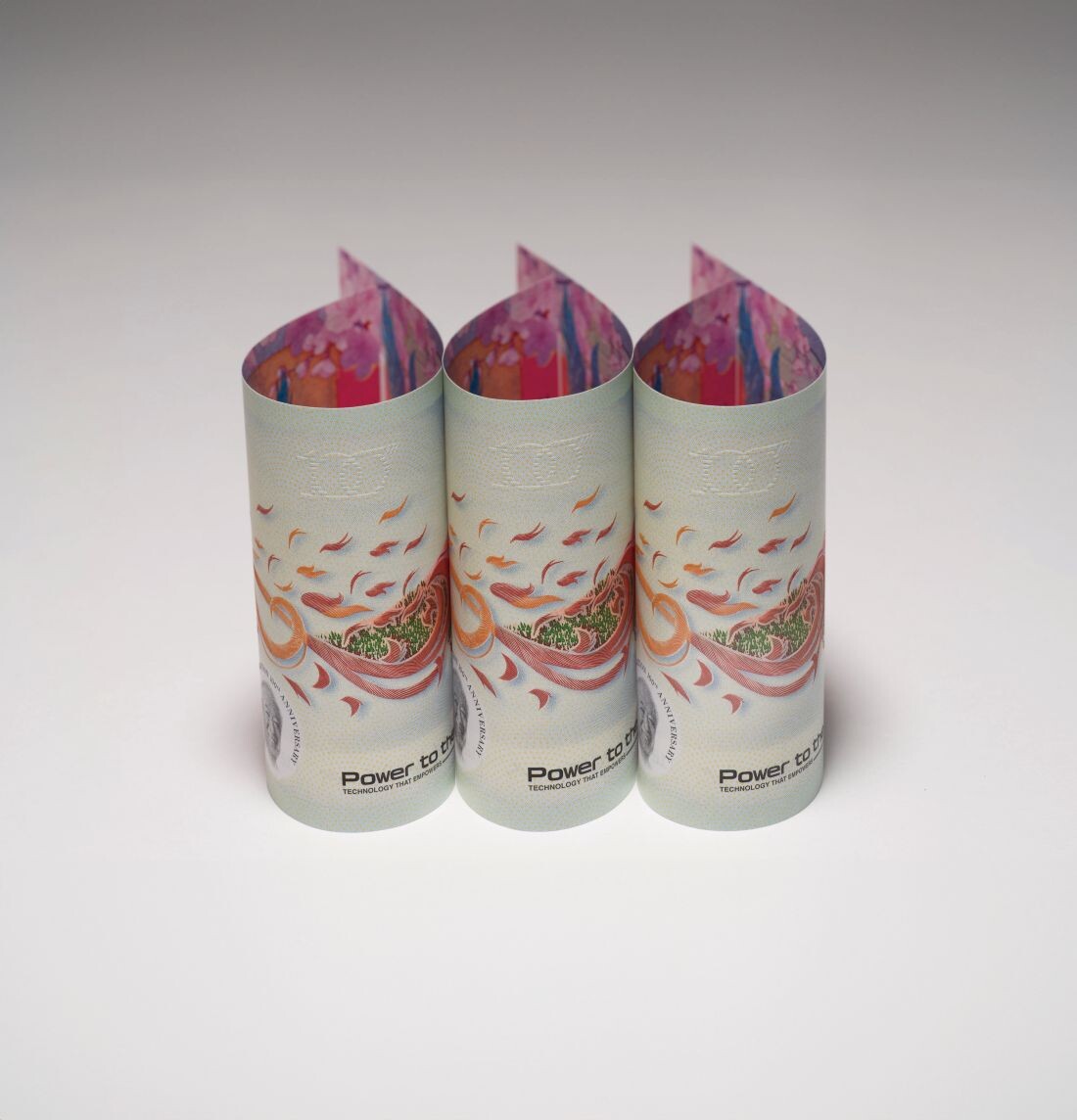
In addition to banknotes, we will expand into the security printing field for passports and ID cards, among others, and have recruited a team to specifically focus on this. We are experimenting with a system to transfer the technology used in the security press business to commercial printing fields, such as security features, and to improve the value preservation capabilities of trading cards, etc.
What do you think about the management resources required to promote the security press business?
The security press business needs to continue providing services to government agencies in each country for decades. For this reason, businesses are required to have a good financial base. We also provide financial documents for each bid. In that respect, our equity ratio of over 60% and our solid financial base have been highly evaluated by various government agencies. In addition, in the 7th Medium-Term Management Plan, we aim for an operating income margin of 9% for our core business, which we consider to be an important line from the perspective of capital costs. We hope to deliver safety, security, and trust to people all over the world through the banknotes our press prints, not just to our government clients. It is no exaggeration to say that our stakeholders are people all over the world. We aim to achieve business results that meet the expectations of our shareholders, while at the same time, we feel that we need to continue to maintain financial strength that can deliver trust to people all over the world.
Please tell us your dreams.
As a businessman, I would like to start by talking about my business dreams. Unfortunately, I cannot give specific details, but there are territories that currently do not have Komori security presses. Entering these markets means that we must adapt and be sensitive to working with customers of varying nationalities and ethnicities. But I believe that through Komori's customer-oriented approach, we will overcome the barriers. I believe that we should always take an approach from customers' point of view to sell our presses in more regions. I also believe the combination of Japanese and Europeans in my team gives us unique perspective and advantage to establish a new style. Building long term relationships is more important than just selling presses.
Aside from business, what are your dreams?
Well, I would like to release a new album record. It sounds a bit formal to say work-life balance, but I am actually playing in a professional gothic rock band. It has been a while since my last release, so I would be happy if I could make another dream come true around next year.

